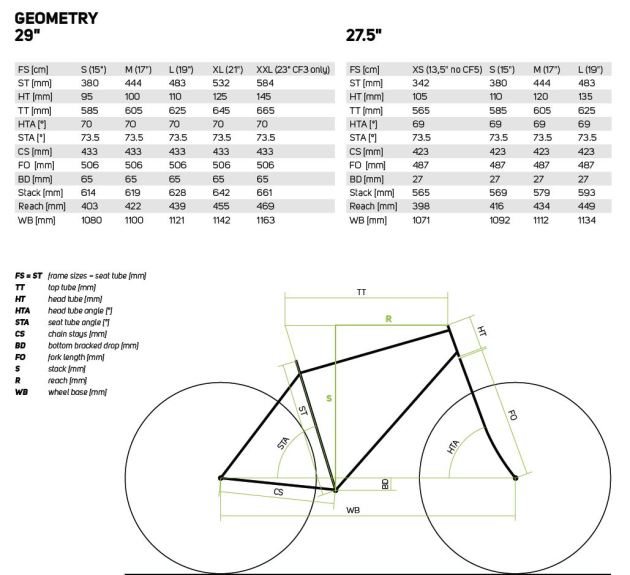Merida Hardtail Overhaul
Big Trail
Merida has a long and strong history of making race oriented XC hardtails, but their latest addition clearly breaks this trend. The new Big Trail is designed for ‘fun’ more than ‘fast’, although the frame geometry and 130mm travel fork suggests that it’ll still go pretty quick, so long as it’s pointed downhill!
It’s all based around a moderately light (1,965g) alloy frame that offers clearance for tyres up to 2.8 inch in width—certainly not the widest plus tyres but a good deal broader than your standard fare XC rubber.

Geometry wise, the bike features short 427.5mm chainstays and a slack 67.5mm head angle. Most importantly, the front of the bike is a lot longer than previous efforts from Merida. A medium for example (440mm seat tube) has a 425mm reach while a large (490mm seat tube) has a 445mm reach. While these reach figures aren’t super long, they are more in line with what you’d expect to see on a modern trail bike.

With more room to play with up front, Big Trail models will be spec’d with stubby 35mm stems. The relatively steep 73.5 degree seat angle will maintain good climbing ability, as it tends to keep your weight forward when seated, and all models will come standard with dropper posts. The Big Trail is also 1X specific with ISCG tabs and clean looking internal cable routing.
We can expect to see two versions of the Big Trail in Australia. The Big Trail 800 will sell for $2,599 with a Shimano XT/SLX 1x11 drivetrain and a RockShox Yari fork. Retailing for $1,999, the Big Trail 600 gets a SRAM NX drivetrain with an RST fork and Tektro brakes.

Big Nine
Merida’s thoroughbred XC race machine also gets an injection of trail attitude for 2017. Like the Big Trail, the Big Nine gains a longer front end. Across the board each frame has 25mm more reach than before. This allows the use of shorter stems whist retaining plenty of cockpit length. Merida XC legend Jose Hermida has gone from using a 110mm stem on his old Big Nine to an 80mm stem on the new version. Shorter stems mean you’re no longer hanging over the front wheel and can descent with greater confidence.

While the front portion of the wheelbase grows, the chainstays shrink by 7mm. Now measuring 433mm, they are certainly on the short side for an XC race bike should add some agility when throwing the back wheel around.
The final noteworthy geometry tweak comes with the headtube length. It has been shortened by 10mm which provides a more aggressive position for XC racers and will make it easier for vertically challenged riders to find a comfortable position with the 29 inch wheels.

Aside from the geometry, Merida has also worked on improving the ride quality with designed in flex on the seatstays and the upper end models also utilise a special ‘S-Flex’ carbon seat post. It’s also worth noting that they’ve opted for a 30.9mm post diameter, as it opens up a broader range of dropper post options; something that’s looming close on the horizon, even for elite level XC racers. The new frame also caters for stealth dropper routing, so the bike will still look tidy if you choose to fit a dropper at a later date.

The Big Nine will be offered in two levels; the top-end team CF5 and a more attainable CF3 version. With the CF5 you get higher modulus fibres and an impressive 900g bare frame weight. It’s also 1X specific, but with the 500% gear range now offered on the SRAM Eagle drivetrain, having one chainring shouldn’t be a compromise, even for marathon racers. While the CF3 gains a little weight it can accommodate a front derailleur and shares the same updated geometry with its top-end cousin.

In Australia we’ll see three different levels of the Big Nine carbon. We won’t be seeing the Team model as a stock item Down Under, although some members of the locally based Torq team will be riding them. Our range topper will be the $7,499 XTR 1X11 equipped Big Nine 9000, which also features the top end CF5 frame. Next in line will be the CF3 equipped Big Nine 7000e; it will sell for $5,499 and comes with the new XT Di2 electronic gears. The regular Big Nine 7000 will come in at $3,999 with a straight XT M8000 group and the SLX equipped Big Nine 4000 will sell for $2,799.
See below for a closer look at the updated geometry and head to www.merida.com.au for more.
Big Trail:

Big Nine:










